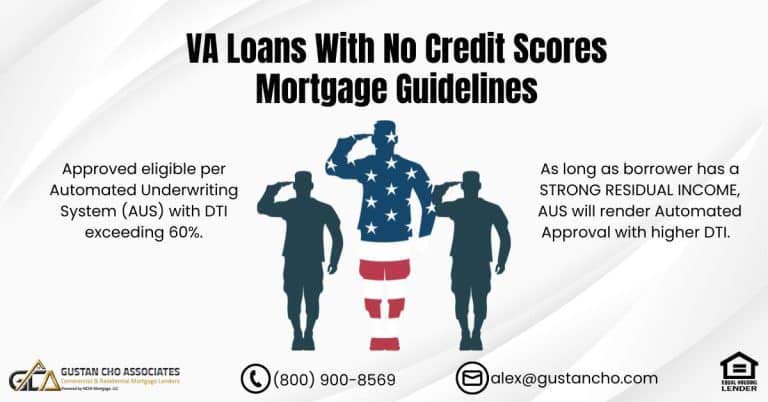This guide covers FHA facts versus fiction of qualifying for FHA loans. The U.S. Department of Housing Administration (HUD) is the parent federal agency of the Federal Housing Administration (FHA). FHA is not a lender. The role of the Federal Housing Administration is to insure FHA Loans originated and funded by private mortgage companies against the loss sustained by borrowers who default and foreclose on their FHA loans.
Over 80% of our borrowers at Gustan Cho Associates are folks who either got a last-minute mortgage denial or are stressing over their mortgage process.
In order for FHA to insure and guarantee FHA loans, the lender needs to follow all HUD Lending Guidelines per HUD 4000.1 FHA Handbook. If the lender does not follow the FHA Guidelines, the FHA Loan will not be insured. Other borrowers are told they do not qualify even though they meed HUD Guidelines. On this blog, we will discuss FHA facts versus fiction on FHA loans. Why is it that so many lenders have different FHA Lending Requirements. What are FHA Facts Versus Fiction?. First-time home buyers and experienced homeowners alike may have misconceptions about what it means to get an FHA loan. Here are some of the most common facts and fictions about buying a house with an FHA loan.
What Are The Down Payment and Credit Score Requirements on FHA Loans
HUD’s role is to promote homeownership to home buyers. This holds especially true for first time home buyers and buyers with less than perfect credit. HUD has made it possible for home buyers to purchase a home with very little down payment. Here are the down payment FHA FACTS Versus Fiction: 3.5% down payment for borrowers who have a 580 credit score.
Borrowers with under 580 FICO can qualify for FHA Loans with 10% down payment with approve/eligible per automated underwriting system findings. The minimum credit score allowed by borrowers to qualify for FHA loans is 500 FICO
Many borrowers are told they do not qualify for FHA loans by other lenders because they do not meet a 620 or 640 credit score. This is not correct. Many lenders will require a higher credit score requirement because they have lender overlays. Lender overlays are lending guidelines that are above and beyond the minimum HUD Agency Guidelines.
FHA Facts vs Fiction: Get the Truth About Approval
Stop believing myths—learn the real FHA facts versus fiction of qualifying for FHA loans
Why Are FHA Loans Popular Among Homebuyers
FHA loans are popular among homebuyers buying their first home and those with less-than-perfect credit due to their relatively lenient requirements. However, there needs to be more clarity about what it takes to qualify for FHA loans. Let’s clarify some common facts and fiction:
Fact: Credit Score Requirements
Fiction: You need a perfect credit score to qualify.
Fact: While FHA loans are known for accommodating lower credit scores, the minimum requirement can vary. A credit score of 580 or higher is required to qualify for the 3.5% down payment for an FHA home purchase loan. Option. If your score is between 500 and 579, you may still qualify with a 10% down payment.
Fact: Down Payment
Fiction: You need a large down payment.
Fact: FHA loans offer down payment options as low as 3.5% of the purchase price. This makes homeownership more accessible for those who may not have substantial savings for a down payment.
Fact: Debt-to-Income Ratio
Fiction: Your debt-to-income ratio doesn’t matter.
Fact: While FHA loans are more lenient than conventional loans, there are still limits on how much of your income can go toward debt payments. Typically, the maximum debt-to-income ratio allowed is 43%, although exceptions may sometimes be made.
Fact: Employment and Income Verification
Fiction: You don’t need to verify your income or employment.
Fact: Lenders will verify your income and employment as part of the loan approval process to want to ensure that you have a steady source of income to make your mortgage payments.
Fact: Property Standards
Fiction: FHA loans can be used to purchase any property.
Fact: FHA loans have specific requirements regarding the condition of the property being purchase. The property must meet certain standards to ensure it’s safe and habitable.
Fact: Mortgage Insurance
Fiction: FHA loans don’t require mortgage insurance.
Fact: FHA loans require an upfront mortgage insurance premium (MIP) and an annual MIP, regardless of the down payment amount. This insurance protects the lender in case the borrower defaults on the loan.
Understanding these facts can help you navigate qualifying for an FHA loan more confidently. Working with a knowledgeable lender who can guide you through the requirements and help you determine if an FHA loan is the right option for your homebuying needs is essential.
Are FHA Loans For Low-Income Borrowers or First Time Home Buyers?
Another common FHA FACTS Versus Fiction is that FHA Loans are NOT for low-income borrowers or first time home buyers. Alex Carlucci is a senior loan officer of Gustan Cho Associates Mortgage Group. This is what Massimo Ressa states about the type of borrowers who qualify for FHA Loans: Neither of these things are true. Home buyers CAN get an FHA loan as a low-income borrower or as a first-time home buyer, but you do NOT have to be one or both.
Are Home Appraisals And Home Inspections Required
Home appraisals are mandatory and required by lenders on both purchase and refinance transactions. An appraisal is not a home inspection. Home inspections are optional by home buyers. Home inspections are highly recommended for all home buyers. Appraisers do not thoroughly inspect the condition of the house
Appraisers only make sure that the subject property is in habitable condition and is safe and secure and all mechanicals is in proper working condition.
A home inspector will be more thorough and inspect the condition of the HVAC systems, plumbing, electrical, roof. Home inspectors will also check for any signs of cracked foundations, the life of the roof, signs of mold and termites, and other defects associated with the subject home. Home inspections are done prior to the appraisal. This way, the buyers can back out if they find anything wrong with the home. There is a big difference between an appraisal versus home inspections.
FHA Facts Versus Fiction of Qualifying for FHA Loans
Separate internet rumors from real HUD guidelines in minutes
FHA Facts Versus Fiction on Collections and Charge-Off Accounts
HUD Guidelines does not require borrowers to pay outstanding collections or charge off accounts. Borrowers can qualify for FHA Loans with outstanding collections and charge off account. Please read more on this topic by clicking: FHA GUIDELINES ON COLLECTIONS AND CHARGED OFF ACCOUNTS. There is no waiting period after a timeshare foreclosure to qualify for FHA loans. HUD does not consider a timeshare foreclosure as a real estate foreclosure. Under the eyes of HUD, a timeshare is an installment loan. It is not a real estate loan.
FHA Facts Versus Fiction of Qualifying For a FHA Loan During and After Chapter 13 Bankruptcy
Many borrowers get conflicting answers on HUD Guidelines in qualifying for an FHA Loan During and After Chapter 13 Bankruptcy. Here are the general rules in qualifying for FHA Loans after bankruptcy and foreclosure: There is a 2-year waiting period after Chapter 7 Bankruptcy discharge date. There is a 3-year waiting period after foreclosure, deed in lieu of foreclosure, short-sale. Home buyers can qualify for an FHA Loan during Chapter 13 Bankruptcy repayment plan one year into the payment plan with Trustee Approval with Trustee Approval. There is no waiting period to qualify for FHA Loans after Chapter 13 Bankruptcy discharge date. Any Chapter 13 bankruptcy discharge that has been seasoned for two years or less needs to be manually underwritten. If you have any questions on this blog or other mortgage topics, please contact us at 800-900-8569 or text us for faster response. Or email us at gcho@gustancho.com.
Make FHA Guidelines Work for You, Not Against You
Let Gustan Cho Associates cut through the myths and get you to clear-to-close









